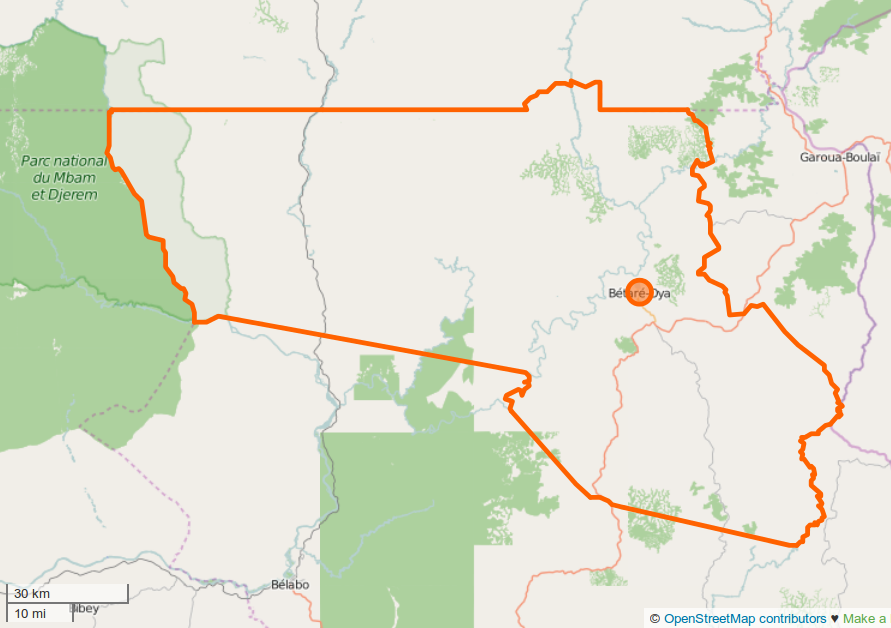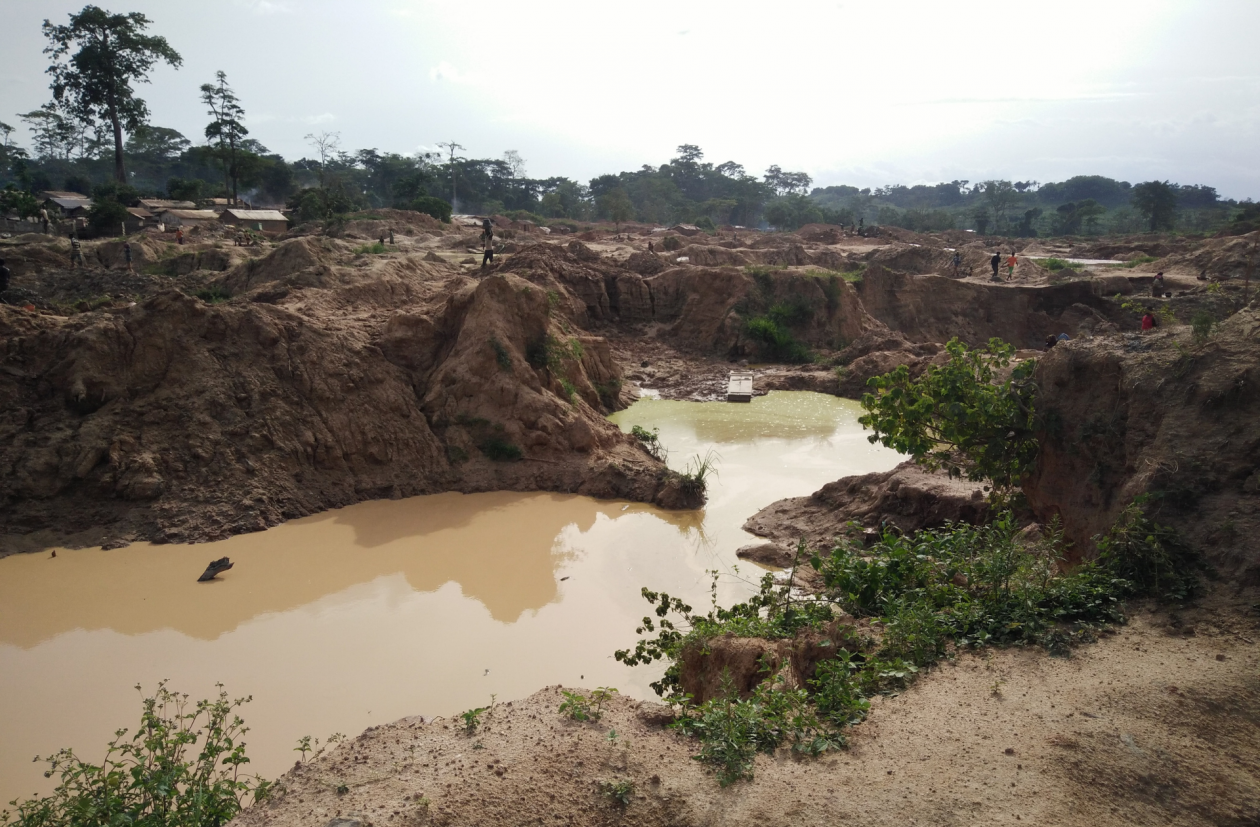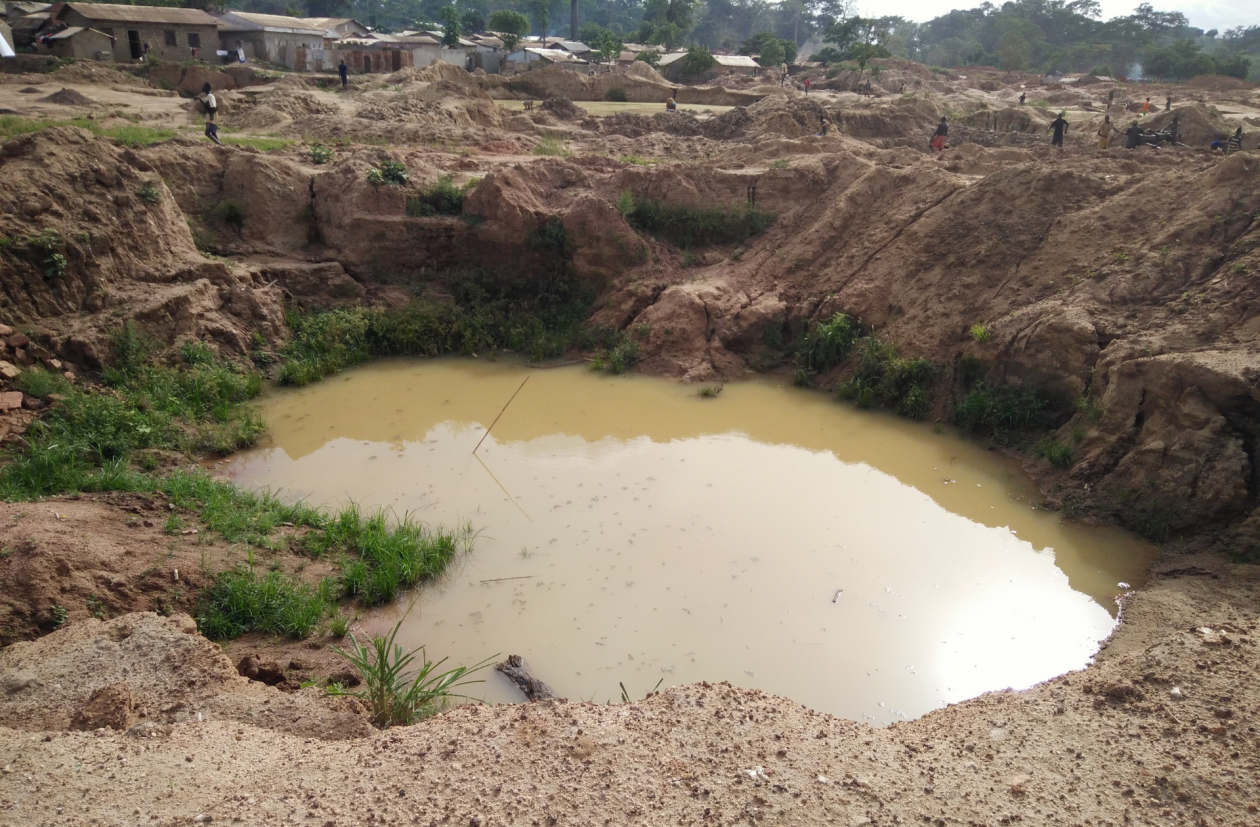By Richard Mbom, CEO of Social Enterprise for Environmental Development (SEED), a grantee that advocates for best practices in the artisanal and small-scale gold mining sector in eastern Cameroon.
For twenty years, foreign investors have come to Africa seeking permits for the exploitation of the continent’s natural resources. Most of these investors come from Asia – notably from China.
In Cameroon, these Chinese investors dominate in the small-scale gold mining sector.. Interaction between these investors and local communities has been conflictual for a number of reasons, including destructive environmental practices.
One source of conflict is the failure to close the mining pits after exploitation, for example in the mining communities of Batouri and Betare-Oya. Besides abandoned mine pits, water pollution generated from heavy metals use is a serious environmental concern.

OpenStreetMap / CC-BY-SA 2.0
There is a provision in the Cameroon mining legislation for the mandatory closure of mine pits after exploitation, but most foreign companies disrespect the mining law as well as the environmental safeguard measures.
“Mining Site and Quarry, Restoration, Rehabilitation and Closure Fund” is a provision in the recent mining code that obliges mine title holders to restore or rehabilitate the site after operations. However, effective implementation of these provisions seem to be treated as a fringe issue leading to the environmental violations by investors exploiting natural resources. Miners often abandon the mine sites and disappear, leaving communities to grapple with the impacts of their actions.

In 2018, Global Greengrants Fund awarded Social Enterprise for Environmental Development (SEED) $5,000 to address these issues head on. This grant helped SEED conduct education and sensitization of local gold mining communities in the eastern region of Cameroon to defend the environment and minimize the harm done by international investors on their environment and livelihoods.
These funds helped the activists at SEED build and strengthen the capacity of civil society organisations, community leaders, women artisanal miners, artisanal mine leaders, and the local councils in mining communities in the East of Cameroon. Our education and sensitization efforts focused on abandoned mine pits that pose health and safety threats.

Through the small grant provided by Global Greengrants Fund, SEED got connected with Australian Aid to continue the advocacy on environmental governance in the mining sector. By building this relationship, we were able to produce a policy brief titled “Mine Closures and sites Rehabilitation Review”: Challenges and Recommendations”, an advocacy tool for policy change in the mining sector of Cameroon. We consider this as work in progress and will continue to work on the issue with the hope of influencing the behavior of these investors through the collective actions and advocacy by communities that are directly affected.
For small organisations interested in influencing both policy and practice, it is not necessarily abundant financial resources that are required from the onset. Small funds can provide an important starting point to work on a niche that has been identified. This is the experience SEED is proud to share after using small funds from Global Greengrants Fund as a spring board to land on larger funds to continue the work.
